Table of Contents
- Introduction: Debunking the Scoville Scale Myth
- What is the Scoville Scale?
- Black Pepper's Heat Source: Piperine Explained
- Why Black Pepper Doesn't Have a Scoville Rating
- Understanding Black Pepper's Unique Heat
- Smart Storage Hacks for Fresh Black Pepper
- Culinary Tips to Maximize Flavor
- Buying Guide: Choosing the Best Black Pepper
- Frequently Asked Questions About Black Pepper's Heat
- Conclusion: Mastering Black Pepper's True Nature
Introduction: Debunking the Scoville Scale Myth
You probably sprinkle black pepper on your meals without a second thought, but did you know this kitchen staple's heat isn't measured on the Scoville scale? Contrary to popular belief, black pepper does not have a Scoville rating. The Scoville scale measures capsaicin content in chili peppers, but black pepper's heat comes from a different compound called piperine. In this article, we'll explain why the Scoville scale doesn't apply to black pepper, debunk common myths, and provide accurate information about its unique heat characteristics. Plus, you'll get smart storage hacks, cooking tips, and a buying guide to make the most of this essential spice.
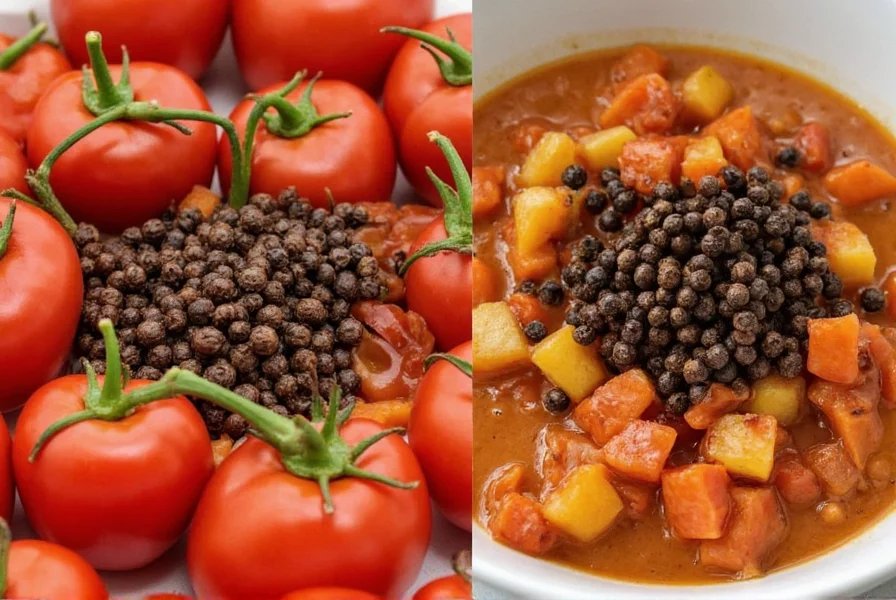
What is the Scoville Scale?
The Scoville scale was developed in 1912 by Wilbur Scoville to measure the pungency of chili peppers based on their capsaicin content. It assigns a numerical value (Scoville Heat Units or SHU) indicating how much capsaicin is present. This scale is exclusively designed for capsaicin-containing compounds and does not apply to other heat-producing substances. The scale measures how much sugar water is needed to neutralize the heat sensation caused by capsaicin.
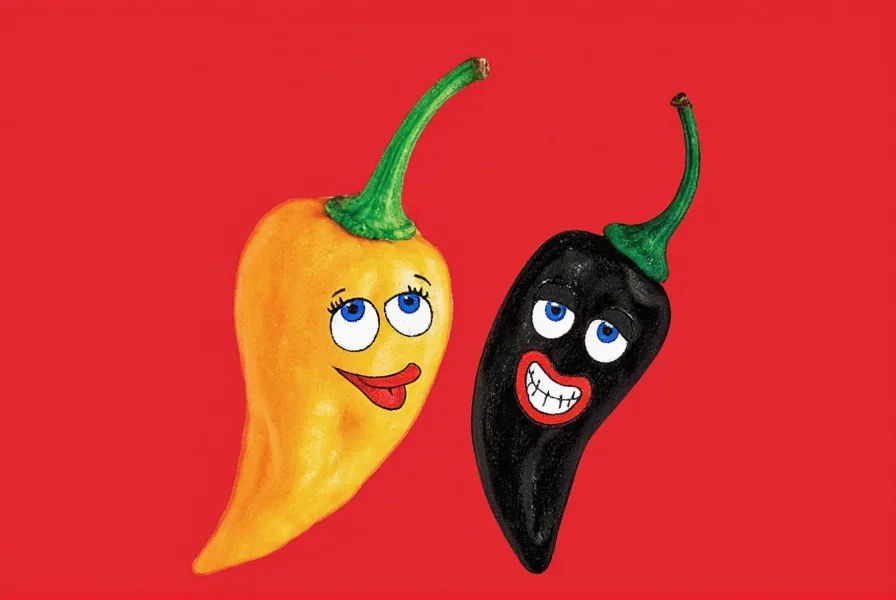
Black Pepper's Heat Source: Piperine Explained
Black pepper contains piperine, a different alkaloid compound entirely from capsaicin. Piperine creates a sharp, tingling sensation primarily on the front and sides of the tongue, rather than the intense burning sensation caused by capsaicin in chili peppers. This compound also enhances nutrient absorption (like curcumin in turmeric) and has unique chemical properties that don't interact with the same pain receptors as capsaicin.

Why Black Pepper Doesn't Have a Scoville Rating
The Scoville scale is scientifically designed only for capsaicin measurement. Since black pepper contains no capsaicin, it cannot be measured on the Scoville scale. Some sources incorrectly assign SHU values to black pepper (e.g., 10,000-30,000 SHU), but this is a misunderstanding of the scale's purpose. These numbers are arbitrary comparisons that don't reflect actual scientific measurement.
| Compound | Source | Heat Sensation | Measured by Scoville Scale? |
|---|---|---|---|
| Capsaicin | Chili peppers | Burning, lingering heat affecting entire mouth | Yes |
| Piperine | Black pepper | Sharp, tingling sensation on tongue surface | No |
Understanding Black Pepper's Unique Heat
While black pepper doesn't have a Scoville rating, its heat characteristics are worth understanding:
- Piperine activates different nerve receptors than capsaicin, creating a distinct sensation
- Heat from black pepper is typically shorter-lived and more localized than chili pepper heat
- It doesn't cause the "burn" sensation that makes you reach for water
- Black pepper's heat is often described as "spicy" but technically isn't "hot" in the Scoville sense
Smart Storage Hacks for Fresh Black Pepper
Want to keep your black pepper potent and flavorful? Here are some simple yet effective storage tricks:
- Use Whole Peppercorns: Ground pepper loses potency quickly. Buy whole peppercorns and grind them fresh when needed.
- Airtight Container: Store in a sealed glass jar or spice dispenser away from light and moisture.
- Cool & Dry Location: Keep your pepper in a pantry or cabinet, not near the stove or sink.
- Avoid Plastic Bags: They don't protect against moisture or air as well as jars do.
- Add Last: Add black pepper at the end of cooking to preserve both aroma and heat.
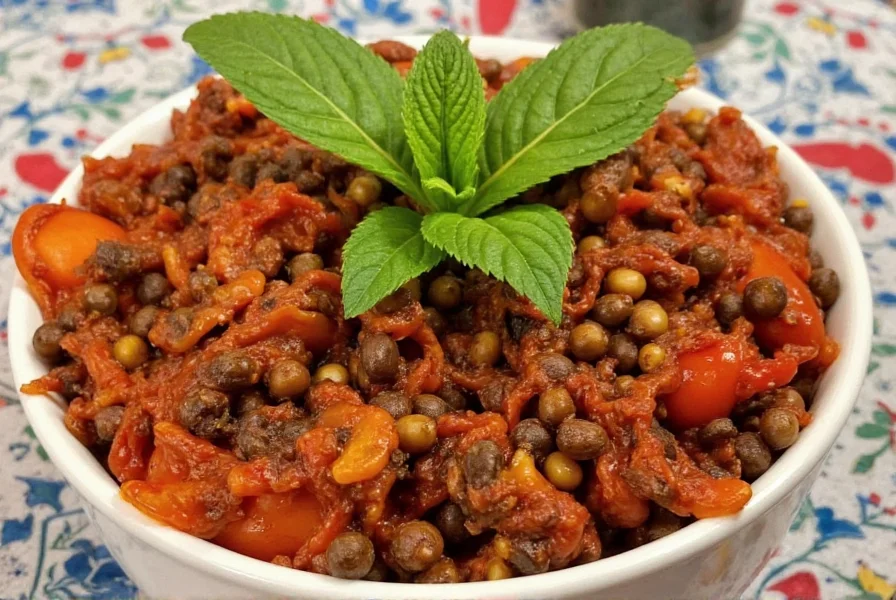
Culinary Tips to Maximize Flavor
Here's how to get the most out of your black pepper in the kitchen:
- Pair With Turmeric: Piperine in black pepper helps increase curcumin absorption, making turmeric even more beneficial.
- Crush Before Using: Crush peppercorns slightly before grinding for stronger aroma and flavor release.
- Toast For More Depth: Toasting whole peppercorns in a dry pan brings out nutty, smoky notes.
- Make Pepper Oil: Infuse oil with cracked black pepper for a bold condiment.
- Balance With Salt: Salt can enhance the perception of heat — use both to bring out the best in your dishes.

Buying Guide: Choosing the Best Black Pepper
Not all black pepper is created equal. When shopping, look for these qualities:
What to Look For
- Whole Peppercorns: Fresher and more aromatic than pre-ground versions.
- Dark Color: Deep black or dark brown peppercorns indicate freshness and quality.
- Pungent Smell: Good black pepper should have a sharp, earthy aroma.
- Brand Reputation: Trusted brands like Penzeys, McCormick Gourmet, or artisan sources are usually reliable.
Top Picks for Black Pepper
| Product Name | Features | Best For | Occasions |
|---|---|---|---|
| Penzeys Tellicherry Black Pepper | Large, extra-bold peppercorns with rich aroma | Chefs & gourmet cooks | Grinding fresh for steak, soups, and sauces |
| McCormick Gourmet Organic Black Pepper | Organic certified, sustainably sourced | Health-conscious users | Daily cooking, seasoning blends |
| The Spice Lab Coarse Ground Black Pepper | Rough ground texture, bold flavor | Homemade rubs and marinades | BBQ, roasting meats |
| Spice Islands Black Pepper Whole | Economical and consistent quality | Home cooks on a budget | Everyday use, salt & pepper mixes |

Frequently Asked Questions About Black Pepper's Heat
Does black pepper have a Scoville rating?
No, black pepper does not have a Scoville rating. The Scoville scale measures capsaicin content in chili peppers, but black pepper contains piperine, a different compound. Since it lacks capsaicin, it cannot be measured on the Scoville scale. Some sources incorrectly assign SHU values for comparison, but this is scientifically inaccurate.
Why does black pepper feel "spicy" if it's not on the Scoville scale?
Piperine creates a distinct heat sensation that many people describe as "spicy," but it's technically different from chili pepper heat. It activates different nerve receptors, producing a sharp, tingling sensation primarily on the tongue's surface rather than the deep burning sensation caused by capsaicin.
Can black pepper be compared to chili peppers in terms of heat intensity?
No, because they work through different mechanisms. Capsaicin (in chilies) binds to TRPV1 receptors causing a burning sensation, while piperine affects different neural pathways. Any numerical comparison between black pepper and chili peppers is scientifically invalid and misleading.
Does the Scoville scale apply to any other spices besides chili peppers?
No. The Scoville scale is specifically designed for capsaicin-containing compounds found only in chili peppers. Other heat-producing substances like piperine (black pepper), allyl isothiocyanate (mustard), or gingerol (ginger) have different mechanisms and cannot be measured on the Scoville scale.
Why do some websites list black pepper with a Scoville rating?
This is a common misconception. Some sources mistakenly assign arbitrary SHU values to black pepper for comparison purposes, but this has no scientific basis. The Scoville scale was never intended for non-capsaicin compounds, and such listings reflect misinformation rather than accurate science.
Does black pepper's heat level vary between types (black, white, green)?
Yes, but not in Scoville terms since none have Scoville ratings. Black pepper has the highest piperine concentration (from fully ripened berries), white pepper (from peeled berries) has slightly less, and green pepper (unripe berries) has the least. However, all varieties contain piperine, not capsaicin.
How can I reduce black pepper's heat in cooking?
Add black pepper later in cooking (heat degrades piperine), use less than you normally would, or balance it with fats (like butter or oil) which can help mitigate the heat sensation. Unlike capsaicin, piperine isn't water-soluble, so drinking water won't help reduce the sensation.
Conclusion: Mastering Black Pepper's True Nature
Now that you understand black pepper doesn't have a Scoville rating, you can appreciate its unique heat characteristics more accurately. While it won't set your mouth on fire like a Carolina Reaper, piperine delivers a distinct, flavorful sensation that complements dishes in its own special way.
From proper storage techniques to culinary applications, you now have the knowledge to use black pepper effectively without relying on misleading comparisons. So go ahead — grind boldly, season thoughtfully, and enjoy the true nature of this timeless spice!
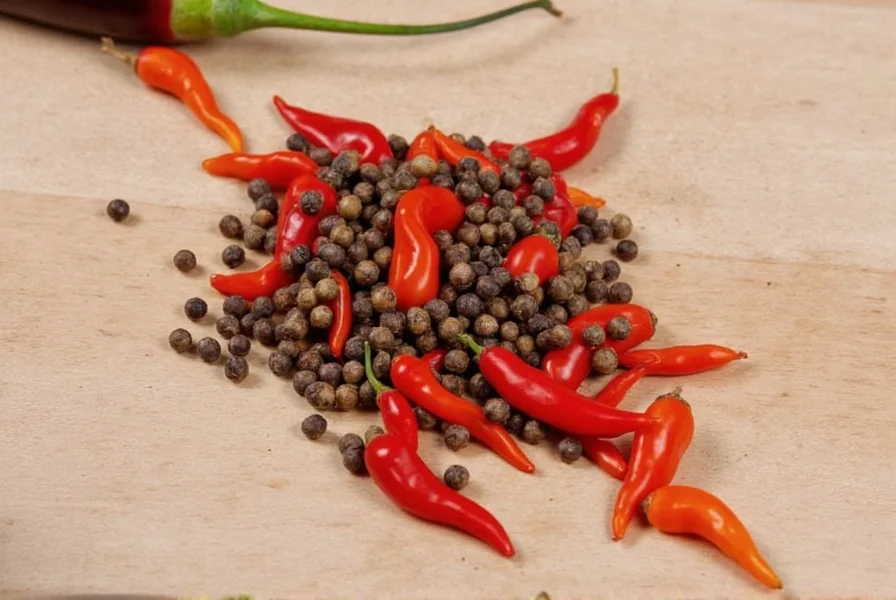

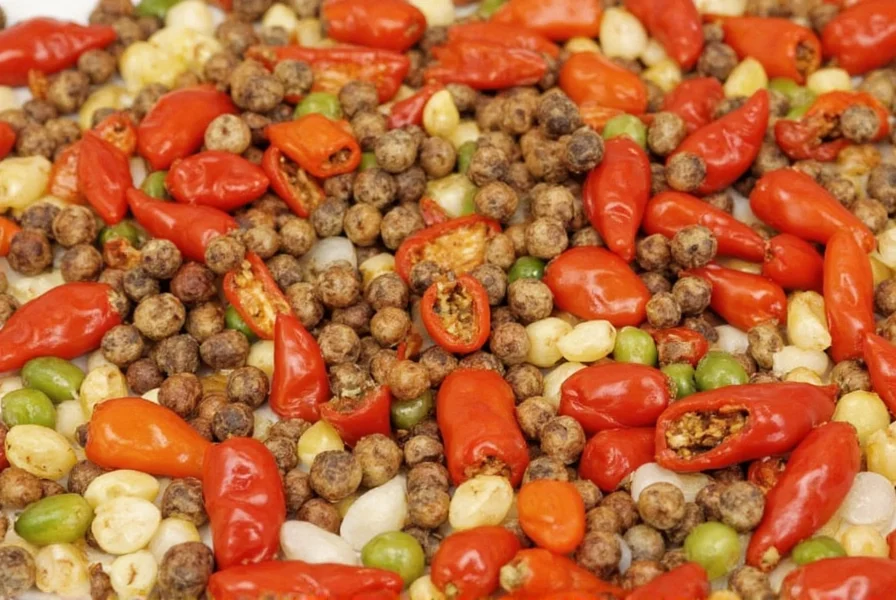









 浙公网安备
33010002000092号
浙公网安备
33010002000092号 浙B2-20120091-4
浙B2-20120091-4